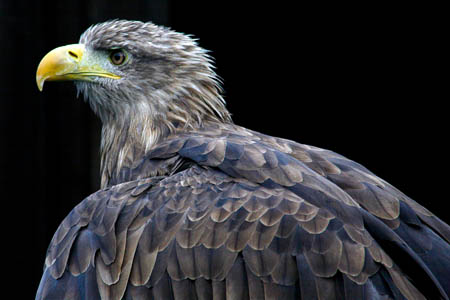Scotland’s international reputation is at risk after the worst ever year for illegal poisoning of birds of prey.
Figures released today by the Royal Society for the Protection of Birds revealed the shameful tally of birds killed, including a rare white-tailed eagle donated to the country by Norway.
Two golden eagles also fell victim to killings, which are most prevalent on upland areas where game shooting is an important revenue earner. Other illegal poisonings included those of 21 buzzards and four red kites.
RSPB Scotland said 2009 had the highest number of confirmed poisoning incidents in a single year in the last two decades. There was a total of 46 cases confirmed by Scottish Government testing.
Other methods of illegal killing of raptors included shooting, use of spring traps and destruction of nests. A spokesperson for RSPB Scotland said: “As many raptors are long-lived and have slow breeding rates, killing of these species, particularly adult breeding birds, can have dire consequences for their populations as a whole.
“This is affecting the conservation status of hen harriers, golden eagles and red kites.”
The society says it is continuing to work with many responsible landowners and welcomes a recent initiative by more than 200 estates. But it says many of the incidents of illegal killing were discovered by chance by hillwalkers and other members of the public in remote areas of countryside, suggesting the true number of cases could in reality be much higher.
Duncan Orr-Ewing, RSPB Scotland head of species and land management said: “We are lucky enough in Scotland to have some of the world’s most majestic species of birds of prey, but unfortunately a significant number of people continue to break the law and undermine the recovery of their populations.
“This activity threatens other countryside industries such as tourism and undermines Scotland’s reputation internationally.
“We will continue to work with the many responsible landowners and welcome the recent initiative by over 200 Scottish estates, who have publicly condemned wildlife crime, and who have called for robust enforcement action against the perpetrators.
“All estates now need to provide tangible evidence that they are taking positive action on the ground to safeguard protected species and giving firm instruction to their employees to obey the law. Increasing the occupied range and breeding productivity of bird of prey species is the best barometer of success.”
A total of 22,000 pledges were received, backing an RSPB Scotland campaign to stop the illegal killing of birds of prey.

![[CC-2.0]](/lib/img/layout/cc-attr.gif)